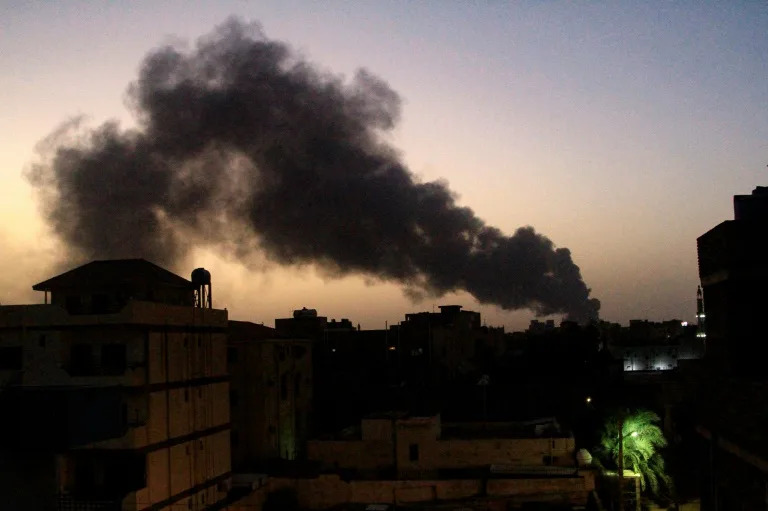
KHARTOUM, May 22 (NNN-AGENCIES) — Heavy clashes again rocked Sudan’s capital hours after rival generals agreed to an upcoming one-week ceasefire, the latest in a series of truces that have been systematically violated.
The ceasefire is set to take effect at 9.45pm on Monday, the United States and Saudi Arabia said in a joint statement after talks in the Saudi city of Jeddah.
It “shall remain in effect for seven days and may be extended with the agreement of both parties”, the statement added.
In a statement published Sunday by the official Saudi Press Agency, Riyadh acknowledged multiple truces have been violated since fighting broke out on Apr 15.
“Unlike previous ceasefires, the agreement reached in Jeddah was signed by the parties and will be supported by a US-Saudi and international-supported ceasefire monitoring mechanism,” the foreign ministry said.
But Khartoum residents – who for weeks have been sheltering from brutal urban warfare amid desperately low supplies of food and vital resources – were sceptical that this time would be any different.
“They have announced truces that they have not held to before,” said Hussein Mohammed, who remains in Khartoum North, sheltering in place with his sick mother even as their neighbourhood became deserted.
The fighting pits the Sudanese army, led by General Abdel Fattah al-Burhan, against the paramilitary Rapid Support Forces (RSF), led by Burhan’s former deputy Mohamed Hamdan Daglo.
The intense battles have killed around 1,000 people and displaced over 1 million, with millions more trapped with sporadic access to water, electricity or medicine.
Many have been separated from their families, just a few kilometres away, by unrelenting gunfire.
Along with the capital, the war-scarred western region of Darfur has seen some of the worst of the fighting.
“We do not trust the warring sides,” said Adam Issa, a shop owner in El-Geneina, West Darfur. “Every time they announce a truce and they go back to fighting. We want a permanent ceasefire, not a temporary truce.”
The region is still reeling from a conflict that erupted in 2003 when former autocrat Omar al-Bashir unleashed the feared Janjaweed militia – which formed the basis for the RSF – to crush a rebellion by ethnic minority groups.
In October 2021, the two warring generals collaborated to oust a civilian government, derailing a transition to democracy following Bashir’s ouster in 2019.
They installed a ruling council with Burhan at its head and Daglo as his deputy, but their marriage of convenience later disintegrated, and their power struggle came to blows.
Burhan on Friday officially sacked Daglo from his position on the council, giving the vice presidency to former rebel leader Malik Agar.
In Khartoum, doctors have repeatedly condemned bombardments on hospitals which have come under attack by both the air force’s fighter jets and the RSF’s artillery.
Residents of densely-populated neighbourhoods have accused RSF fighters of widespread break-ins and looting.
Civilians and aid agencies have for weeks pleaded for both sides to secure humanitarian corridors to let in urgently needed assistance.
Currently, 25 million people – more than half of the population – need humanitarian aid, the highest number the United Nations has ever recorded in the country.
A prolonged conflict, which analysts warn is likely, will cause millions more to become food insecure and push a million people to flee into neighbouring countries, according to the UN
The UN’s special envoy to Sudan, Volker Perthes, on Saturday flew to New York, where he is due to brief the Security Council on Monday. — NNN-AGENCIES
